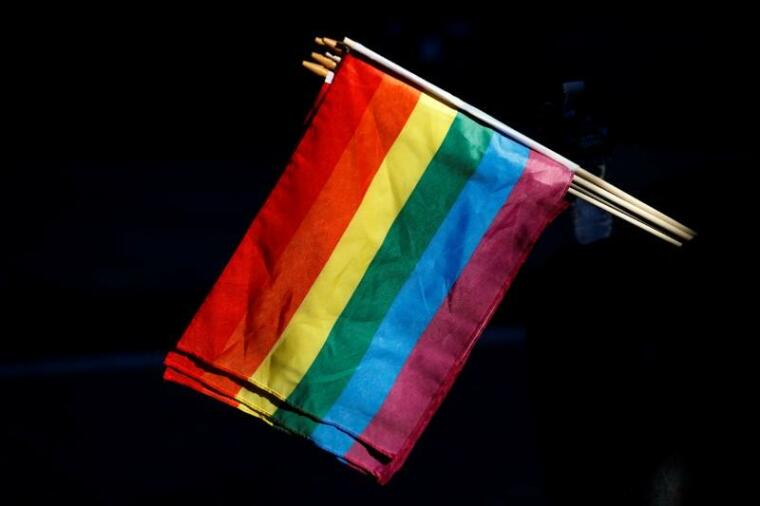LGBT acceptance in the US declines for the first time in years, GLAAD poll shows

A survey sponsored by the pro-homosexual advocacy group Gay & Lesbian Alliance Against Defamation (GLAAD) has indicated that the acceptance of LGBT people in the U.S. has dropped to its lowest in four years.
The study, conducted by The Harris Poll, was aimed at measuring Americans' comfort level toward LGBT people with a variety of situations, such as learning a family member is homosexual and having a child placed in a class with an LGBT teacher.
GLAAD stated that awareness and acceptance of LGBT issues have been increasing since it released its first report in 2014, but the group claimed that "the acceptance pendulum abruptly stopped and swung in the opposite direction" this year.
The findings revealed that 49 percent of non-LGBT adults reported being "very" or somewhat" comfortable with LGBT people across seven situations, compared to 53 percent last year.
Fifty-five percent of LGBT adults said that they have experienced discrimination because of their sexual orientation or gender identity, an 11 percent increase from the previous year.
Thirty percent of non-LGBT respondents said they would be uncomfortable learning that a family member is LGBT, up from 27 percent last year. Thirty-one percent were uncomfortable having their child placed in a class with an LGBT teacher, compared to 28 percent the previous year. Thirty-one percent were uncomfortable learning their doctor is LGBT, an increase of three percentage points from last year.
The poll was conducted online between Nov. 16–20, 2017 with a total of 2,160 adult respondents, 1,897 of whom were classified as non-LGBT adults.
The report also revealed that 79 percent of non-LGBT respondents said they "support equal rights for the LGBT community," while only 14 percent of the non-LGBT population is considered as "resisters" of the pro-homosexual and pro-transgender agenda.
GLAAD CEO Sarah Ellis said that the decline in LGBT acceptance in the U.S. is "a dangerous repercussion in the tenor of discourse and experience over the last year."
The report attributed the decline to President Donald Trump's proposed ban on transgenders joining the U.S. military and the confirmation of U.S. Supreme Court Justice Neil Gorsuch, whom Ellis says is opposed to "marriage equality" despite his attendance at a pro-LGBT Episcopal church.
Bob Stith, the Southern Baptist Convention's former national strategist for gender issues, said he is "not sure" that the findings are showing a "significant difference" in American attitudes toward the LGBT community.
He went on to say that "given the statistical variation of polls, I don't think either side can draw accurate conclusions as to the long-term significance."
"[I]t is possible that the results could signify that the onrush of gay activism is beginning to reach the sea wall of Bible believing Christians," Stith remarked.
"For those of us who are fully committed to Scripture, acceptance of what God calls sin simply can't happen. That is a bridge we cannot cross," he added.
 Christians don't have to affirm transgenderism, but they can’t express that view at work: tribunal
Christians don't have to affirm transgenderism, but they can’t express that view at work: tribunal Archaeology discovery: Medieval Christian prayer beads found on Holy Island
Archaeology discovery: Medieval Christian prayer beads found on Holy Island Presbyterian Church in America votes to leave National Association of Evangelicals
Presbyterian Church in America votes to leave National Association of Evangelicals Over 50 killed in 'vile and satanic' attack at Nigerian church on Pentecost Sunday
Over 50 killed in 'vile and satanic' attack at Nigerian church on Pentecost Sunday Ukrainian Orthodox Church severs ties with Moscow over Patriarch Kirill's support for Putin's war
Ukrainian Orthodox Church severs ties with Moscow over Patriarch Kirill's support for Putin's war Islamic State kills 20 Nigerian Christians as revenge for US airstrike
Islamic State kills 20 Nigerian Christians as revenge for US airstrike Man who served 33 years in prison for murder leads inmates to Christ
Man who served 33 years in prison for murder leads inmates to Christ


 Nigerian student beaten to death, body burned over ‘blasphemous’ WhatsApp message
Nigerian student beaten to death, body burned over ‘blasphemous’ WhatsApp message 'A new low': World reacts after Hong Kong arrests 90-year-old Cardinal Joseph Zen
'A new low': World reacts after Hong Kong arrests 90-year-old Cardinal Joseph Zen Iran sentences Christian man to 10 years in prison for hosting house church worship gathering
Iran sentences Christian man to 10 years in prison for hosting house church worship gathering French Guyana: Pastor shot dead, church set on fire after meeting delegation of Evangelicals
French Guyana: Pastor shot dead, church set on fire after meeting delegation of Evangelicals ‘Talking Jesus’ report finds only 6% of UK adults identify as practicing Christians
‘Talking Jesus’ report finds only 6% of UK adults identify as practicing Christians Mission Eurasia ministry center blown up in Ukraine, hundreds of Bibles destroyed: 'God will provide'
Mission Eurasia ministry center blown up in Ukraine, hundreds of Bibles destroyed: 'God will provide' Church holds service for first time after ISIS desecrated it 8 years ago
Church holds service for first time after ISIS desecrated it 8 years ago Burger King apologizes for 'offensive campaign' using Jesus' words at the Last Supper
Burger King apologizes for 'offensive campaign' using Jesus' words at the Last Supper Uganda: Muslims abduct teacher, burn him inside mosque for praying in Christ’s name
Uganda: Muslims abduct teacher, burn him inside mosque for praying in Christ’s name